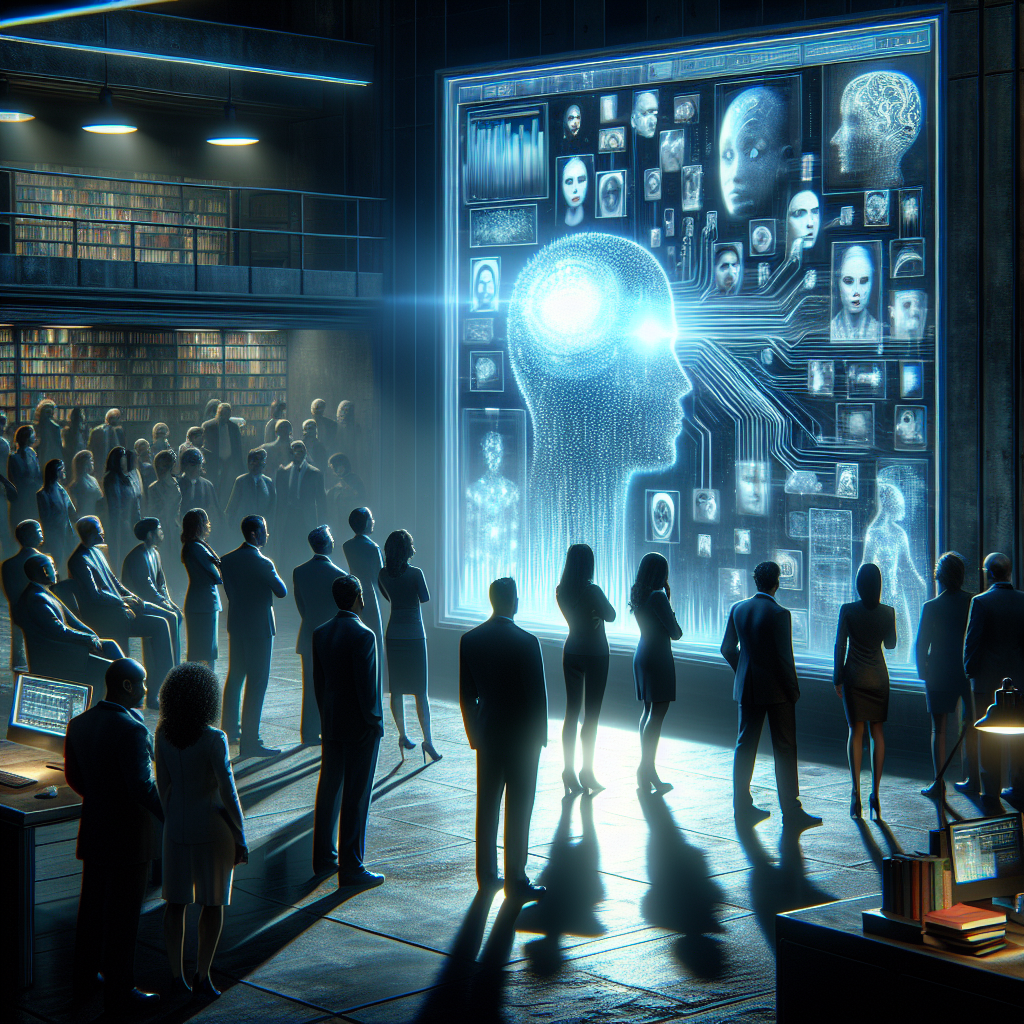AI Companies Are Committing Mass Theft and Hiding Behind the Language of ‘Training’
In recent years, the rise of artificial intelligence (AI) has been both exhilarating and concerning. AI technologies promise to revolutionize various sectors, yet they come with significant ethical dilemmas, particularly regarding intellectual property (IP) and the way these systems are ‘trained’. The ongoing debate about the legitimacy of data usage by AI companies has intensified, shedding light on issues of mass theft and exploitation of content creators’ work.
The Context: AI and Data Training
To understand the implications of AI companies’ practices, it’s crucial to first comprehend what ‘training’ means in this context. AI systems, particularly those that leverage machine learning, require substantial amounts of data to function effectively. This data is used to teach algorithms how to recognize patterns, make predictions, and ultimately generate outputs that mimic human creativity and decision-making.
However, the method of collecting this data raises ethical concerns. Many AI companies are accused of scraping vast amounts of information from the internet, including copyrighted material, without the consent of the original creators. This large-scale data collection is often justified under the guise of ‘training’, leading to widespread criticism.
The Issues at Hand
As AI technologies continue to evolve, several pressing issues emerge:
1. Intellectual Property Rights:
AI companies often use copyrighted content—whether it be images, text, or music—without permission from the creators. This raises questions about ownership and the extent to which content can be utilized without violating IP laws.
2. Lack of Transparency:
Many AI companies are not transparent about their data collection practices. This opacity makes it difficult for content creators to understand how their work is being used, leading to a sense of betrayal and exploitation.
3. Economic Displacement:
The proliferation of AI-generated content threatens the livelihoods of artists, writers, and other creative professionals. As AI can produce work at a fraction of the cost, it undermines the economic viability of traditional creative roles.
4. Quality of Output:
AI systems trained on vast amounts of unverified data may produce low-quality or inaccurate content. This can lead to misinformation and further erode trust in creative works.
5. Ethical Considerations:
The ethical implications of using human-created content to train AI systems raise questions about accountability. When AI outputs infringe on the rights of creators, who is responsible?
The Legal Landscape: Current and Future Challenges
The legal frameworks surrounding AI and intellectual property are still developing. Courts are grappling with how existing laws apply to AI-generated content and whether AI itself can hold copyrights. Some key points include:
– Existing Copyright Laws: Traditional copyright laws may not adequately address the nuances of AI-generated content. As such, courts may face challenges in ruling on cases involving AI companies and content creators.
– New Legislation: In response to the growing concerns, there is a push for new legislation that specifically addresses the intersection of AI and copyright. This could include clearer guidelines on data usage and protections for content creators.
– International Implications: As AI companies operate globally, the differences in copyright laws across jurisdictions complicate the legal landscape. A unified approach may be necessary to address cross-border issues effectively.
Moving Towards Ethical AI Practices
In light of these challenges, many stakeholders advocate for a more ethical approach to AI development and data usage. Here are some recommendations that could contribute to a more equitable environment for all parties involved:
1. Mandatory Licensing Agreements:
AI companies should be required to obtain licenses for any content they use to train their algorithms. This would ensure that creators are compensated for their work and retain control over how their content is utilized.
2. Clear Disclosure Policies:
AI companies must establish clear policies outlining how data is collected, used, and stored. Transparency can foster trust between AI companies and content creators.
3. Investing in Creators:
A portion of the revenues generated from AI-generated content could be allocated to support the original creators. This would create a more sustainable ecosystem where both AI companies and content creators can thrive.
4. Collaboration with Creators:
AI companies should engage with content creators to understand their concerns and collaborate on solutions that benefit both parties. This could include joint ventures where creators are involved in the development of AI technologies.
5. Ethical Training Data Practices:
Companies should prioritize sourcing training data ethically, ensuring that all material used is either in the public domain or has been appropriately licensed.
The Future of AI and Creativity
While AI technologies offer exciting possibilities for innovation, it is crucial that we address the ethical implications surrounding their use. As we navigate this new era, it is essential to prioritize respect for intellectual property rights and the voices of content creators. By fostering collaboration, transparency, and ethical practices, we can create a future where AI complements human creativity rather than undermines it.
In conclusion, the advent of AI companies specializing in content generation has sparked a significant conversation about the nature of creativity and ownership in the digital age. It is imperative that as we advance in our technological capabilities, we do so with a commitment to ethical standards that protect the rights of individuals while still pursuing innovation. The road ahead will require cooperation, dialogue, and a thorough examination of the implications of AI on our creative landscape.



